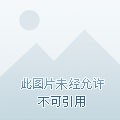Cover news reporter Yan Wenwen
On April 23, World Book Day, the sharing activity of the new book "Four Books (Translation)" sponsored by Sichuan Xinhua Publishing and Distribution Group Co., Ltd. and Xinhua Wenxuan Publishing and Media Co., Ltd. and undertaken by Bashu Book Club was held in Chengdu. How was a classic book born? What kind of new thinking can it bring to modern people? How do modern people read the classics? The four authors of the book gave answers in a conversation around the theme of "returning to the classics, reading the classics, inheriting the classics; not forgetting the original, absorbing the foreign, and facing the future".

The "Four Books" ("University", "Zhongyong", "Analects", "Mencius") are recognized as the core classics of Chinese culture, embodying the core ideas of Confucian philosophers. After Zhu Xi's "Four Books, Chapters and Sentences" became the standard textbook for the imperial examination, the "Four Books" were widely circulated, which can be said to be the common intellectual background of all social classes for more than 700 years. Among the "Four Books", the Analects mainly record the words and deeds of Confucius and his disciples, and are the most direct reflection of Confucius's thought in the Confucian classics. Mencius inherited and developed the ideas of Confucius, and made a more detailed exposition of the Confucian concept of Heavenly Tao, the theory of human nature, and the theory of benevolent government. The two books of the Analects and Mencius expound Confucianism most clearly and systematically, and the text is relatively simple, making it the best introductory book for beginners. In addition, Song Ru advocated the combination of reading and self-cultivation, and could not judge "governing the scriptures" and "entering the morality" as two ways. The central idea of "University" talks about the way of "inner saint and outer king", the main content is "three programs, eight articles", and it is very clear how to cultivate oneself by qualities, knowledge, righteousness, sincerity, family unity, governance, and peace in the world. Therefore, Song Ru regarded "University" as the "door to enter morality". The "Way of the Mean" expounded in "Zhongyong" is the highest realm of self-cultivation and learning. In short, through the study of the "Four Books", have a basic understanding of the "truth" of Confucianism, and then read other books, you will receive the effect of "doing more with less".
Professor Wang Qitao, dean of the School of Chinese Chinese And Literature of Southwest University for Nationalities and dean of the Institute of Tibetan, Qiang, and Yi Culture of Southwest University for Nationalities, said that Sichuan is a strong province in the production of ancient books, the collation of ancient books, the study of ancient books, and the publication of ancient books. Since the Han Dynasty, Sichuan's cultural classics have been very brilliant, producing a group of talented encyclopedic scholars, such as Yang Xiong, Sima Xiangru, and Sansu, and Sichuan's ancient book collation is very strong from the Tang Dynasty to modern and contemporary times, and it is an important town for the publication, research and collation of ancient books in China. In addition to the "Four Books (Translation)" published this time, there will be "Five Classics" in the future, and both the author and the publisher are willing to make their own contribution to the popularization, creative transformation and innovative development of ancient books.
Yang Shiwen, a researcher at the Institute of Ancient Books of Sichuan University and a doctoral supervisor, explained why he chose the engraving of Zhu Xi's "Four Books, Chapters and Sentences" by Wu Ying and Wu Zhizhong in the Qing Dynasty, and translated, annotated, and popularized on the basis of it. Zhu Xi's method of annotating the Four Books is very different from that of the Han Dynasty, when the Han Dynasty wrote very cumbersome scriptures, Zhu Xi was very simple, paying special attention to the elaboration of meaning. Zhu Xi attaches great importance to the "Four Books", it can be said that his life's experience has been in the "Four Books", and he was still revising three days before his death, which can be said to be his life's work. In the Yuan Dynasty, Zhu Xi's annotated "Four Books" became the textbook for the imperial examination, and later became a compulsory reading for all readers, because the imperial examination used it as a teaching material, which influenced Chinese history for eight or nine hundred years, and even spread to Korea, Japan, Vietnam and other countries in the East Asian cultural circle.
Zhang Hui, lecturer at the Folklore Research Institute of the Institute of Social Development of Southwestern University of Finance and Economics, further introduced the characteristics of the Four Books (Translations) as a popular reading of traditional culture. As one of the authors, Zhang Hui believes that the book is accurate, concise, fluent in language and beautiful in design, and she also hopes that readers can truly feel the wisdom of the sages in the process of reading or disseminating, understand the charm of traditional culture, and enhance cultural self-confidence and cultural consciousness.
Wen Junyuan, a distinguished researcher at the Institute of Higher Education of Sichuan Normal University, gave advice from the perspective of how to read the classics: read well, find answers from books, and summarize a set of his own methods.
At the end of the sharing meeting, Lin Jian, president of the Bashu Book Club, summed up the process of publishing the "Four Books (To the Translation)", and said that the Bashu Book Club, which has always taken the inheritance and promotion of China's excellent traditional culture as its own responsibility, must uphold the tradition and adhere to the guidance of the "Opinions on Promoting the Work of Ancient Books in the New Era" of the two offices, deeply promote the creative transformation and innovative development of China's excellent traditional culture, promote the development of ancient books, and provide spiritual strength for the realization of the great rejuvenation of the Chinese nation.